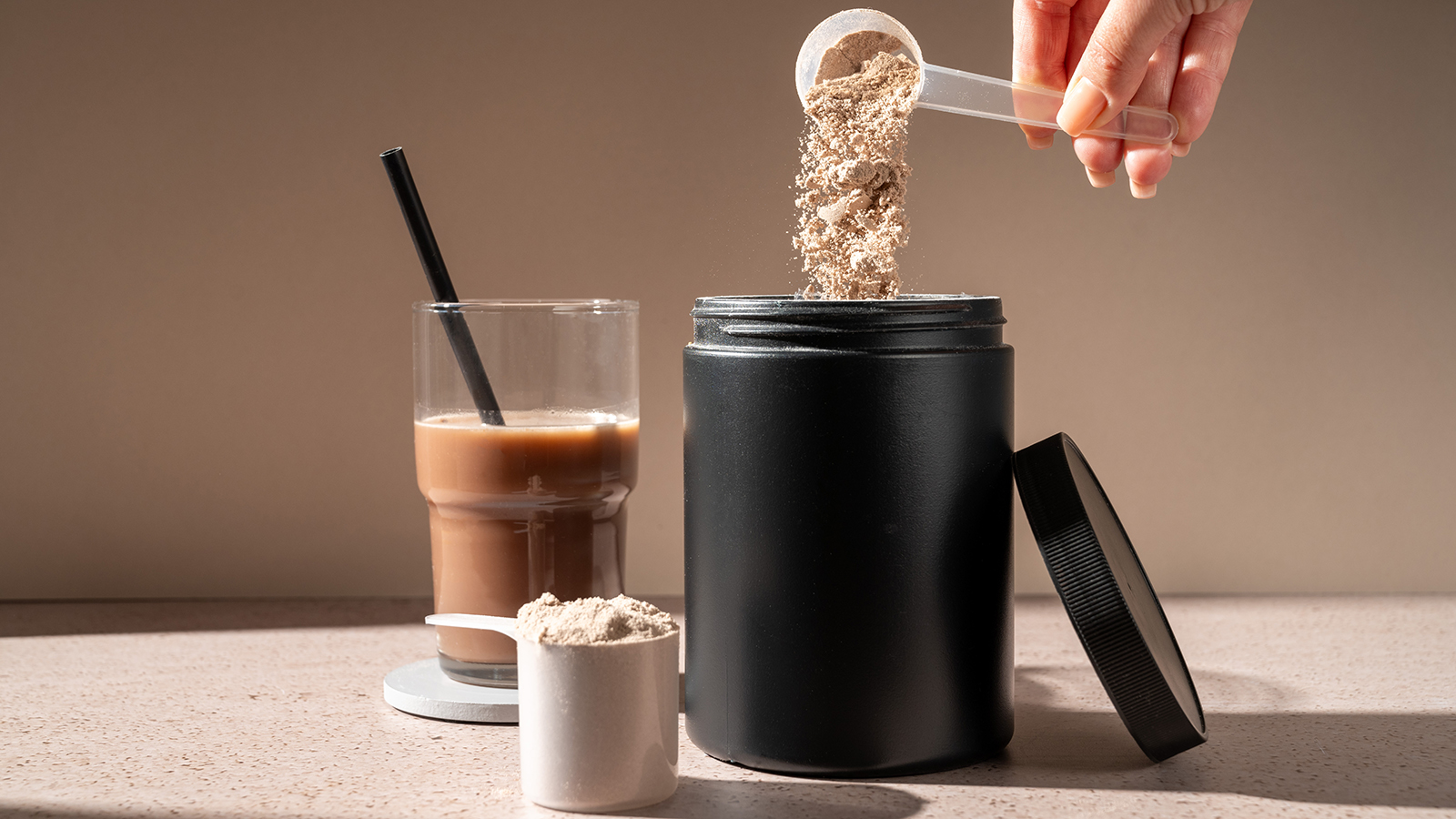
Here at Tom’s Guide our expert editors are committed to bringing you the best news, reviews and guides to help you stay informed and ahead of the curve!
You are now subscribed
Your newsletter sign-up was successful
Want to add more newsletters?

Daily (Mon-Sun)
Tom's Guide Daily
Sign up to get the latest updates on all of your favorite content! From cutting-edge tech news and the hottest streaming buzz to unbeatable deals on the best products and in-depth reviews, we’ve got you covered.

Weekly on Thursday
Tom's AI Guide
Be AI savvy with your weekly newsletter summing up all the biggest AI news you need to know. Plus, analysis from our AI editor and tips on how to use the latest AI tools!

Weekly on Friday
Tom's iGuide
Unlock the vast world of Apple news straight to your inbox. With coverage on everything from exciting product launches to essential software updates, this is your go-to source for the latest updates on all the best Apple content.

Weekly on Monday
Tom's Streaming Guide
Our weekly newsletter is expertly crafted to immerse you in the world of streaming. Stay updated on the latest releases and our top recommendations across your favorite streaming platforms.
Join the club
Get full access to premium articles, exclusive features and a growing list of member rewards.
A high-protein diet could help improve fat loss, keeping you fuller for longer while supporting muscle growth, maintenance and repair. And if you’re burning fat and building muscle, you’re also giving your metabolism a boost.
There’s been a much bigger shift toward protein as the focus of the three macronutrients over the last few years, but when should you consume it? As a personal trainer, I think I’ve heard and been asked about it all, from whether or not the 30/30 rule — consuming 30 grams of protein within 30 minutes of waking up — is real (not really) to the debate about having protein before or after a workout, and the ideal amount and timing.
It's a minefield, which is why I was delighted to speak with Professor Stuart Phillips, a muscle health and protein expert and, not long ago, a top 1% cited scientist. If I trust anyone to tell me when to consume protein, it’s this guy.
Ready to debunk some health myths? Here’s the best time to take protein, and why.
What is protein?

Before we dive into when you should take protein, do you know what protein actually is?
Protein is one of the three macronutrients alongside carbs and fats. Yes, it is famous for helping you build muscle, but it also impacts other bodily processes, including hormone regulation, neurotransmitter function and tissue repair.
Protein is formed of amino acid chains, which act like building blocks for muscle growth. There are nine essential amino acids that can’t be produced naturally by the body, but can be sourced through diet. Your body breaks down protein into amino acids, which are then used as a currency within your body. As such, you’re looking at a supply and demand chain to replace these amino acids regularly.
Get instant access to breaking news, the hottest reviews, great deals and helpful tips.
Protein needs will differ depending on factors like exercise, age and goals, but Professor Phillips recommends aiming for roughly 1.6 to 1.8 grams of protein per kilogram of body weight as a guide for most people. And remember, the current published guidelines, which are lower, only look at avoiding deficiency, not optimal intake. This number generally increases for athletes, bodybuilders and sportspeople.
When is the best time to consume protein?

Stuart Phillips is a professor in the Department of Kinesiology at McMaster University. He is a Tier 1 Canada Research Chair in skeletal muscle health and director of the Physical Activity Centre of Excellence (PACE) and the McMaster Centre for Nutrition, Exercise and Health Research. If that isn't enough, he is also a lab lead for the Exercise Metabolism Research Group.
I’ve always been taught that protein should be consumed immediately after a workout for optimal muscle recovery, at least within a few hours of finishing exercise, but preferably sooner. I asked Professor Phillips, simply: “What do you think about protein timing?”
“When I first started doing this work, it was all around carbohydrates and muscle glycogen with respect to nutrient timing, and protein got dragged along with it,” he says. “It was thought that the same post-exercise anabolic window existed. It’s not quite the same as carbohydrates; protein sort of chugs along.
“Definitely, you’re more sensitive to the effects of protein post-exercise than you are pre, so it makes a little more sense if you’re going to ingest protein to have it after exercise.”
However, Phillips explains that because protein continues to accumulate for as long as two days after you’ve worked out, most of the research now suggests the timing doesn’t seem to be as critical as we first thought.
That said, for elite athletes in particular, Phillips still encourages performers to start recovery as soon as possible, immediately post-workout, getting protein in and starting repairing and rebuilding. But for the everyday person? “Don’t worry as much,” he says.
And with respect to improved performance by taking protein pre-workout — is that a myth?
Should you have protein before a workout?

According to Phillips, for the most part, yes, it's a myth that protein pre-workout is a key performance enhancer. “It doesn’t make that much of a difference,” he says.
Pre-exercise or post-exercise, somewhere around that workout period (peri-exercise nutrition) is a good time. When it comes to performance, Phillips votes for carbs beforehand and protein afterward.
For those who struggle to eat breakfast or focus on diet during the day, protein can be a great pre-workout meal, if it doesn't cause digestive issues. However, “robust evidence” suggests that pre-and/or post-workout protein induces a “significant rise in muscle protein synthesis”, as also demonstrated by this one study.
The research concluded that total daily caloric and protein intake (long-term) is the most crucial piece of the puzzle and recommends a “peri-exercise protein intake,” but particularly post-training for performance and recovery.
If you’re unfamiliar with the terms "peri-exercise" or "peri-workout nutrition," it simply means the window surrounding a workout — before, during and after — where you fuel your body for performance, recovery and muscle support. This can include carbs for energy release, protein for muscle repair and growth and overall hydration.
Bottom line
Whenever you choose to consume protein to support performance and recovery, a great starting point is to aim for 1.6 to 1.8 grams per kilo of body weight, or use a macro calculator if you really want to drill into the specifics. Then, try to spread protein out across the day to include every meal.
The quality of your protein also matters, so where possible, strive for natural sources and read the label of any supplements and protein powders. As a trainer, I always tell clients, “If you can’t say it, don’t eat it,” meaning that if you’re staring at a ton of ingredients you don’t recognize, it’s unlikely a quality supplement.
Aim for at least 20 grams of protein per serving and try to focus on a balanced diet of carbs, healthy fats, veggies and greens.
Follow Tom's Guide on Google News, or add us as a preferred source, to get our up-to-date news, analysis, and reviews in your feeds. Make sure to click the Follow button!
More from Tom's Guide
- What to eat before a workout according to a sports nutritionist
- Best time to drink a protein shake
- How much protein do you need to build muscle?

Sam Hopes is a level 3 qualified trainer, a level 2 Reiki practitioner and fitness editor at Tom's Guide. She is also currently undertaking her Yoga For Athletes training course.
Sam has written for various fitness brands and websites over the years and has experience across brands at Future, such as Live Science, Fit&Well, Coach, and T3.
Having coached at fitness studios like F45 and Virgin Active and personal trained, Sam now primarily teaches outdoor bootcamps, bodyweight, calisthenics and kettlebells.
She also coaches mobility and flexibility classes several times a week and believes that true strength comes from a holistic approach to training your body.
Sam has completed two mixed doubles Hyrox competitions in London and the Netherlands and finished her first doubles attempt in 1:11.
You must confirm your public display name before commenting
Please logout and then login again, you will then be prompted to enter your display name.
 Club Benefits
Club Benefits










